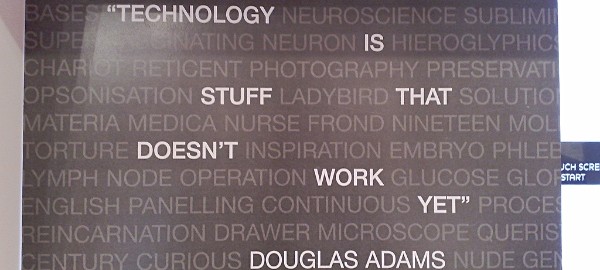Why ‘government as platform’ is a really bad idea.
In The WIRED world in 2013 there’s an article by Anne-Marie Slaughter talking about ‘government as platform’:
The big political idea of 2013 is government as platform. It is not a new idea, but rather one whose time as come. It is also an idea that will seem more and more obvious and valuable as the gap between government resources and public needs continues to increase. The divide between the societies that have the values and the resources to make government as platform work, and those that continue to work through command and control, will help define the political cleavages of the 21st century.
So what is ‘government as platform’, exactly?
To understand government as platform, first think of government as control tower: an entity that sits above us, directs us and regulates us. Then imagine government as vending machine… where citizens pay taxes in and get services out.
That sounds like a spectacularly bad idea. Not everyone has access to the ‘vending machine’ in the same way. And don’t people have different needs, etc.?
Government as platform… is government as iPhone, providing the basic hardware and software to enable citizen participation, innovation and self-organisation.
Ah, so here it is. An Apple-inspired metaphor (everyone loves those!) to provide a new twist on basic Conservative principles: small state, low taxation, self-reliance. Never mind systemic injustice, eh? Just get out of the way and let people get on with it.
Government as platform sounds exciting. It’s a buzzphrase. It trips easily off the tongue. But behind it is the same old Conservative approach of favouring the rich and damning the poor. Pointing (as the author does) to Tim O’Reilly and to “a set of principles that are often the exact opposite of the way government traditional works” doesn’t help either. We’d still have the same old corrupt politicians and outdated legal structure.
Let’s take an example of how government as platform Conservatism works in action, shall we? Newcastle-upon-Tyne, the city closest to where I live, is being ravaged by cuts. First came the news that because of the need to find ‘cost savings’ of £90 million the city council is to close all but one of the libraries in the city. Next it was revealed that there would be no more funding – none at all – for arts and culture in the city.
Once this stuff is gone it doesn’t come back for a long time, if ever.
I see government as platform as a dangerously idealistic mask for common-or-garden Conservatism. I don’t want pointless pseudo-elections. I don’t want misguided education ministers going £1 billion over budget on an Academies programme most in the teaching profession are against. And I certainly don’t want educational institutions to go private.
There’s an elite in this country. A privately-educated, unaccountable elite wrecking everything that’s good whilst upholding everything that’s bad. It was bankers who got us into this mess. Yet they’re the ones being rewarded with tax breaks whilst the poor have their welfare cut.
In my opinion, my children’s generation will judge the current UK administration as one of the most damaging there’s been for a very long time.
Image CC BY Sean MacEntee



